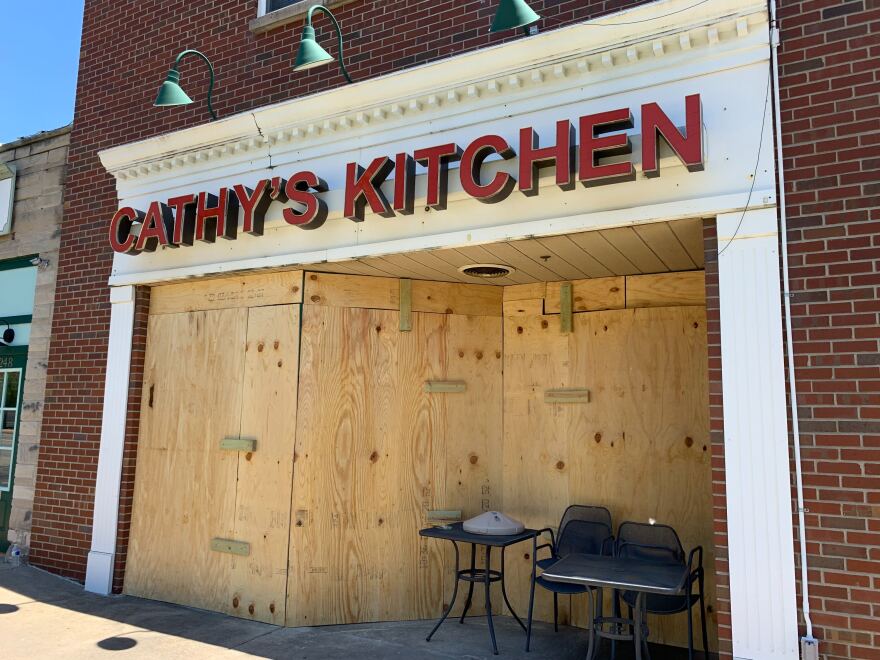Earlier this month, Yousef Shawish woke up at 4 a.m. to a call from the police.
They told him his convenience store, Quick Shop One Market on Natural Bridge Road, had been broken into and damaged. When he got there the next day, Shawish saw bricks from the outside wall scattered everywhere, and he noticed the ATM and boxes of cigarettes were gone.
“Whatever we made in the past three months we spent on fixing the store,” Shawish said.
His business is one of about 50 across the city that reported damage or theft from late-night looting that occurred in the aftermath of George Floyd's death in Minneapolis.
Property damage is putting an additional financial strain on some minority-owned businesses that were already struggling to recover from the pandemic’s economic impact.
Shawish, a Jordanian American, opened the business in March just before coronavirus stay-at-home orders went into effect. He wasn’t able to get insurance during the height of the pandemic. When the looting occurred, he and his family members were left to repair the damage, spending several thousand dollars out-of-pocket.
Shawish is still worried about the virus, but he said he can’t afford to shut down the business.
“You can't stop because I don't own it all the way. I still pay my rent. I have a house rent, I have car payments. You can’t just close,” he said.
Erica Henderson with the St. Louis Economic Development Partnership said that almost two dozen businesses in Ferguson, Dellwood and Jennings have recently experienced property damage too. She runs financial support programs with the partnership, including one that has helped businesses repair shattered windows.
Henderson said short-term funding like grants and zero-interest loans are important tools for recovery. But in a moment when people are calling out racial injustices, she said it’s time to address long-standing barriers for minority business owners.
“So, it's really using this as a learning moment for all of us just to say that we need to prioritize small businesses, businesses of color to ensure that they have accessibility to the information and accessibility to the resources to ensure their success,” she said.
Henderson is working on developing more long-term programs to keep businesses going.
She said her organization also is helping St. Louis County business owners figure out where and how to apply for immediate recovery money. The partnership has given away more than 100 $500 grants to self-employed people in north St. Louis County, and it’s providing zero interest loans to businesses across the county.
Jerome Jenkins has received some financial support from the partnership.
He runs Ferguson-based restaurant Cathy’s Kitchen with his wife.

Jenkins said it’s been exhausting running a business over the past few months. He thought he could take a day earlier this month to relax and celebrate his son’s high school graduation. But rioters broke into the restaurant the night before, smashing windows and breaking tables.
He said it would have been worse without help from protesters, who addressed the situation in the evening and came back to clean up the mess the next day.
“I'm thankful that they care enough about our business to make sure that it's up and operating,” he said.
Jenkins is encouraged to see even more people coming back to buy food. But he said black-owned businesses like his need more significant long-term help to get them through the pandemic.
“You know, you got to put protective glass shields up on the registers; you got to use every other table. So, there's a lot of things that you got to do — and that comes with a financial cost,” he said.
Jenkins said it’s harder for black-owned businesses to come up with the money to pay for all of these new things. But he’s optimistic that people are being more intentional about supporting businesses of color.
“I hope it's long term,” he said. “I hope this is a change in our country where they realize that there's a big difference in economic equality and we do need help.”
Follow Corinne on Twitter: @corinnesusan
Send questions and comments about this story to feedback@stlpublicradio.org





